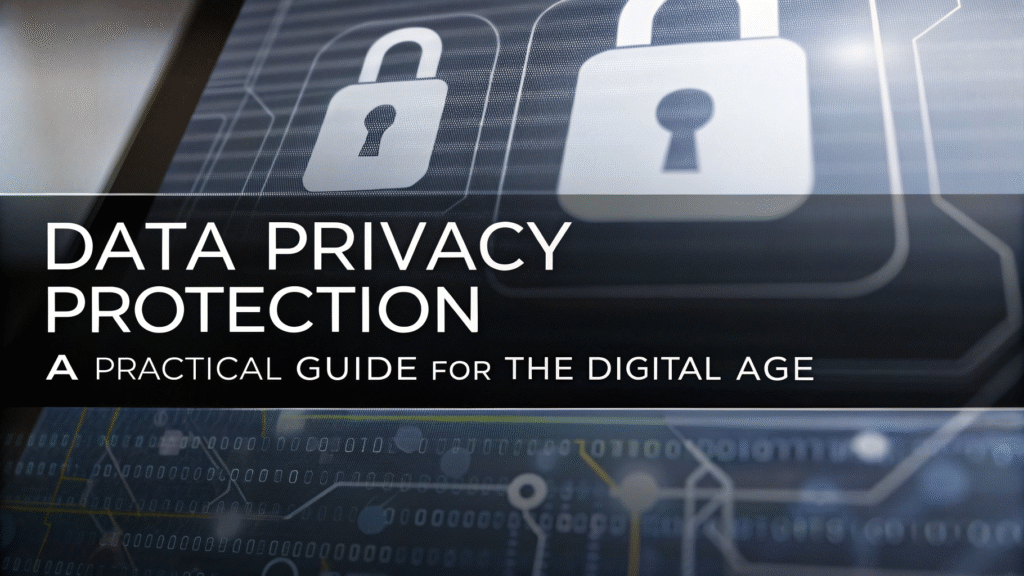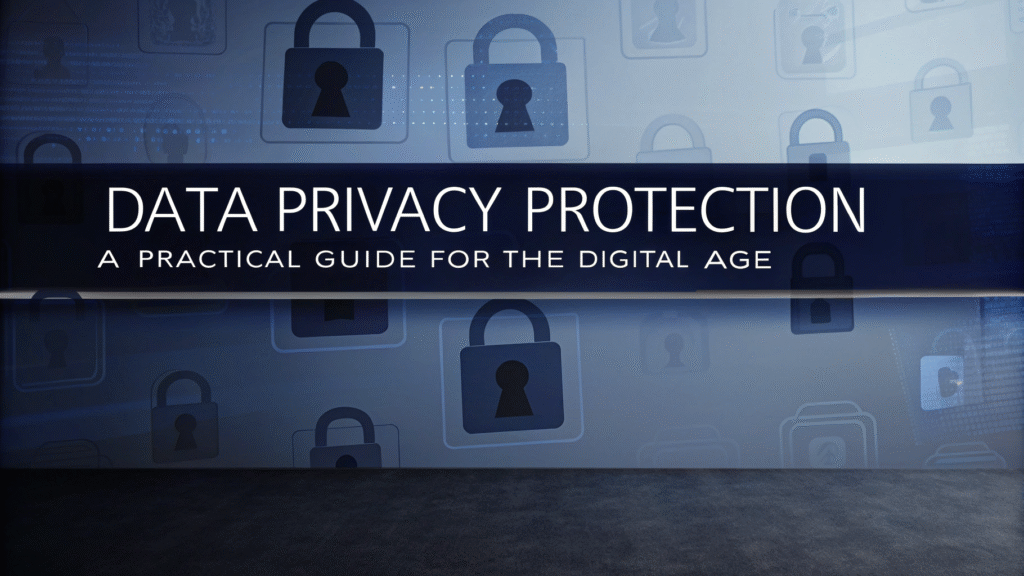
Introduction
Every click, search, and online purchase creates a digital footprint. In today’s interconnected world, mastering data privacy is essential for taking control of personal information. It’s about deciding who can access your data, how you use it, and how long you store it. For entrepreneurs, marketers, and anyone living in the digital age, understanding these principles is not just a technicality—it’s a fundamental aspect of personal security and professional responsibility. This guide will demystify data privacy and provide actionable steps to fortify your digital life.
The History & Evolution of Data Privacy
The concept of privacy has evolved significantly with technology.
- Pre-Internet Era: People primarily experienced privacy physically, focusing on their right to be left alone. Laws protected against unlawful search and seizure of physical property and documents.
- The Digital Dawn (1970s-1990s): As databases grew, the first data protection laws emerged. The focus was on limiting government and corporate collection of personal information.
- The Big Data Revolution (2000s-Present): The explosion of social media, e-commerce, and mobile technology made personal data a valuable commodity. High-profile data breaches led to landmark regulations like the GDPR (2016) in Europe and CCPA (2018) in California, shifting power back to individuals and making data privacy protection a global conversation.
Who Needs Data Privacy? (Audience & Demographics)
Virtually everyone is a stakeholder in data privacy, but it’s especially critical for:
- Individuals & Families: To protect financial details, personal communications, and children’s online safety from misuse.
- Entrepreneurs & Small Businesses: To comply with regulations, protect sensitive customer data, and build a foundation of trust.
- Marketers & Content Creators: To ethically handle user data collected through websites and campaigns, ensuring transparency and consent.
- Freelancers & Remote Workers: To secure client information and proprietary data on personal devices.
Key Features of Data Privacy Protection
Effective data privacy is built on several core principles:
- Several core principles underpin effective data privacy:
- Control: Having the ability to access, correct, and delete your personal information.
- Consent: You provide meaningful opt-in approval before anyone collects or shares your data.
- Security: The implementation of measures (like encryption) to protect data from unauthorized access.
- Accountability: Organizations taking responsibility for how they manage the data they collect.
The Business & Marketing Potential of Privacy
Prioritizing privacy is a powerful business strategy.
- Builds Consumer Trust: In an era of skepticism, companies that are transparent about data practices earn customer loyalty. A reputation for strong data privacy protection is a significant competitive advantage.
- Enhances Brand Reputation: Proactively protecting customer data prevents the devastating financial and reputational damage of a data breach.
- Ensures Regulatory Compliance: By adhering to laws like GDPR, businesses avoid hefty fines and legal complications. As a result, they can operate more smoothly, especially in global markets.
Data Privacy Protection: Best Practices & Tips
Here are actionable steps for individuals and businesses to enhance their data privacy.
For Individuals
- Audit Your App Permissions: Regularly review the permissions granted to mobile apps and browser extensions. Revoke access to features like your microphone, contacts, or location if they aren’t essential to the app’s function.
- Use Privacy-Focused Tools:
- Opt for search engines like DuckDuckGo that don’t track your searches.
- Consider using a privacy-oriented browser or browser extensions that block trackers.
- Strengthen Your Social Media Settings: Lock down your social media profiles. Make your accounts private and be mindful of the personal information you share publicly, such as your birthdate, address, or vacation plans.
- Think Before You Share: Be cautious about what you post online. Once information is on the internet, it’s nearly impossible to take back.
For Businesses
- Adopt a Privacy-First Culture: Embed data privacy into your company’s values and operations from the top down. Train employees on the importance of data privacy protection.
- Practice Data Minimization: Only collect the data that is absolutely necessary for a specific, legitimate purpose. Don’t hoard customer information “just in case.”
- Create a Clear Privacy Policy: Your privacy policy should be easy to find and understand, clearly stating what data you collect, how it’s used, and who it’s shared with.
- Implement Strong Security Measures: Protect the data you hold with encryption, access controls, and regular security audits.
Alt text: A person securely managing their digital life, representing effective data privacy protection.
Challenges & Limitations
Despite best efforts, several challenges persist:
- The Convenience Trade-Off: Many services require personal data to function. Users often sacrifice privacy for convenience.
- Complex Legal Landscape: Complying with a patchwork of international, federal, and state privacy laws can be incredibly complex for businesses.
- Lack of Awareness: Many individuals are still unaware of how their data is collected and used, making them vulnerable.
- Evolving Technology: New technologies like AI and IoT devices create novel data collection points and privacy concerns that regulations struggle to keep pace with.
Future Outlook
The future of data privacy will be shaped by several key trends:
- AI and Privacy: Moreover, Artificial Intelligence plays a dual role. On one hand, it creates new privacy risks through sophisticated data analysis; on the other hand, it provides innovative solutions to anonymize and protect data.
- Increased Regulation: Governments will enact more comprehensive privacy laws worldwide, forcing businesses to adapt to a standardized yet demanding environment.
- Consumer Demand for Control: As awareness grows, consumers will increasingly demand greater control over their data, favoring brands that offer transparency and choice. Data privacy protection will become a standard expectation, not a luxury.

Conclusion
Data privacy protection is an ongoing journey, not a one-time setup. It requires vigilance, education, and a proactive mindset. By understanding your rights and taking deliberate steps—whether as an individual tightening your social media settings or as a business adopting a privacy-by-design approach—you reclaim control over your digital identity. In the modern economy, privacy is priceless. Start implementing these practices today to build a more secure and trustworthy digital future for yourself and your business.